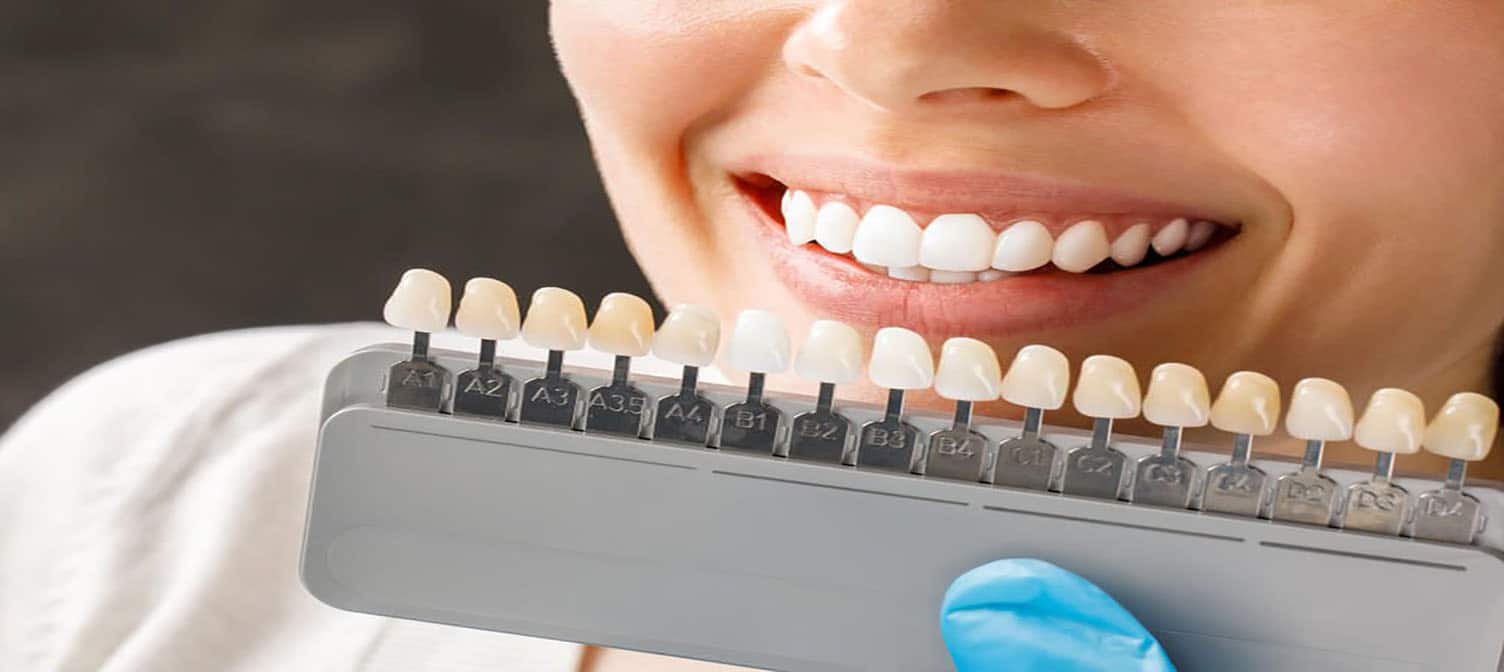Dental veneers are a cosmetic dental procedure that involves creating custom-made shells to fit over the front surfaces of your teeth. While technically labeled as cosmetic dentistry, there are functional realities beyond cosmetic concerns with veneers. Getting veneers protects your natural teeth by reinforcing the front surface of your tooth. Veneers can transform your smile in the best ways, give you a boost in confidence, and ensure your teeth are protected.
Table of Contents
Getting Dental Veneers: From Consultation to Completion
Your first appointment with your cosmetic dentist will assess if you are a good candidate and develop the proper treatment plan. Good candidates for veneers include individuals with chipped teeth (especially front teeth), tooth decay, crooked teeth, misshapen teeth, or small gaps who want to see cosmetic improvements.
Your dentist will ensure that you meet the dental health requirements and assess individual needs in order to get veneers. They will ensure that good oral health is maintained, that gum disease is absent and that no root canals are necessary.
Once it’s decided that cosmetic veneers are the best way forward, the type of veneer is selected. There are different types of veneers. The first step is to pick one. Veneers can be either porcelain or composite. Porcelain veneers are stain-resistant, tooth-colored materials that closely mimic natural tooth enamel. Composite resin veneers, on the other hand, are alternatives using resin-composite materials applied directly to the tooth surface.
Once that is decided with your dental team, the prep work begins: removing a small amount of natural tooth enamel from the front surfaces of your teeth.
The final step before final placement is to take impressions of your teeth to create custom veneers (Depending on the type of veneer you choose – this step is not necessary with composite veneers). This can take a few weeks before the final placement of the new veneers; therefore, temporary veneers may be used in the meantime while you wait for the permanent veneers.
Benefits of Dental Veneers & Cons of Veneers
The primary cons of veneers are their high cost, as dental insurance typically does not cover them. These have also been shown, in some instances, to increase tooth sensitivity on the front surface of teeth, which can impact patients in the long term.
Yet, it is clear that veneers are still a great option to enhance the look of your teeth and improve the appearance of your smile, all while protecting the front surface of your teeth. This is also a great solution as veneers are a permanent and durable solution for cosmetic concerns with teeth- as long as you take care of your veneers. This is achieved through proper dental hygiene, regular dental care, and scheduling routine dental check-ups. Proper care is critical to a successful experience with dental veneers.
We are happy to talk to you and see if you might be a good fit for veneers and if they’re the proper dental treatment for you. Reach out to us today to see if you are the right fit for veneers and if we can help your confidence shine with the appearance of your smile.

